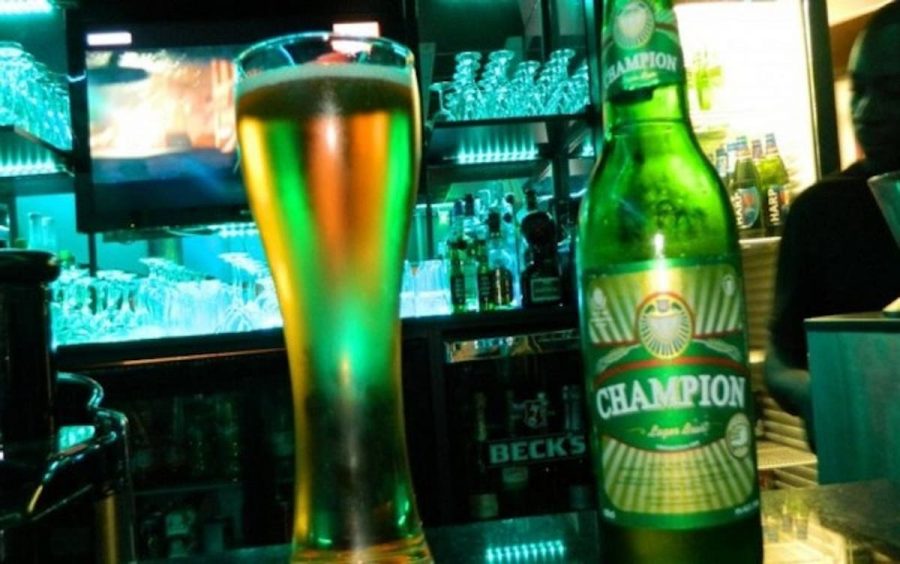Place your adverts here on InfoDig @ low rates; banner ads, sponsored links and guest articles etc. Contact us
Indeed and in deed, I’m not envious of the T-Pain nickname of President Bola Tinubu because I’m T-P, too. But my T-P is not Tunde-Pain. Neither is it the weight loss Tinubu-Pain capsule the President is forcing down the throats of Nigerians.
My T-P, Tunde-Paradox, is the product of my inability to explain why I always manage to sleep off in the cinema, with all the banging noise and lighting effects while I, ironically, wake up at the slightest of sounds when in bed.
Everyone has their kicks in life. I have mine, and media counts among them, while others include literature, culture, music, writing and football. Media is the umbrella word for film, video, theatre, radio, television, social media, etc.
You wonder why a supposed media enthusiast is unenthusiastic about watching films and television and hardly listens to the radio? It’s because very few programmes tickle my fancy. Though I enjoy a few programmes on TV and radio, I’m not one to have the days and times of TV or radio programmes tucked in my skull. For anything, however, I love theatre and football; in the arms of these two, I never fall asleep. I love literature, culture and music too, though a little toad resides in my voice.
Seriously speaking, however, you won’t fall asleep when your children choose their Gen-Z films by themselves online and demand your company at the cinema. I keep them company at the cinema while sleep takes away my boredom.
My brain is ageing, I admit. Whose brain isn’t, anyway? Unknotting the motifs and storylines of some foreign-themed films right inside the cinema has never been my forte. So, whenever I’m lured to watch a movie with unfamiliar characters and storylines, I yawn and succumb to sleep. Oh, you don’t know what you’re missing – sleeping in the cinema is sweet; it’s like escorting pounded yam on the mouthward journey with afang or edikang ikong soup while you suck delicately on periwinkles.
“Baba T, did you see that?” an elbow nudges me awake. “Uhn, what, yes, no, what!?” I murmur, praying for the film and its cup to pass over me quickly. “Ah, Baba T is sleeping.” “No, I’m watching with my eyes closed.”
Because of its naturalness and spontaneity, I prefer the theatre to the cinema. I love sitting in the crowd, watching and running mental critiques of plays, comedies, musicals, shows, etc. I also love storytelling but I won’t bore you with the well-worn story of how the cock and its fleshy comb became sought-after food for the fox – after the cock told the fox that its comb wasn’t fire, which the fox was hitherto fleeing from, thereby losing the loci of power to the fox forever. The cock lost respect and its fear factor due to its own making.
The cock and fox story is a parable for the mistreatment Nigeria’s national team, the Super Eagles, suffered at the hands of Libyan authorities when they flew to Libya to honour an AFCON return leg match a few days ago. In Libya, the Eagles were debeaked, defeathered, declawed, detained and disgraced without kicking a ball. If the balls of Nigeria had not been dangling shamelessly to the ridicule of the world, Libya, an oil-rich desert of 7.3m people – lesser than Oyo State population of 7.9m – would not dehumanise the Super Eagles. Libya, a country that is not among the top 10 list of African countries with the strongest military, would not humiliate Nigeria if it knew Nigeria wasn’t big for nothing. The Muammar Gaddafi country won’t gleefully try that rubbish with Egypt, Cameroon, South Africa, Cote d’Ivoire and Ghana, without getting a comeuppance from CAF. Why bear the name giant and behave like an ant? Or could the exchange rate of N339.85 Nigerian naira to one Libyan dinar be the reason Libya thinks it can treat the Super Eagles as trash? It’s time Nigeria stopped acting dumb and condemn North Africa’s mistreatment of Black Africa. The Tinubu administration shouldn’t fail at home and fail abroad because ìyà méjì kìí je òkú ìgbé – the unfortunate fellow shouldn’t suffer two misfortunes.
Findings by yours truly showed that the NFF were not complicit in the allegations of mistreatment levelled against Nigeria during the first leg of the AFCON tie in Uyo, Akwa Ibom, by Libyan authorities some days ago. The Eagles won the match 1-0.
Media Officer of the Super Eagles B team and Editor, ExtrasportNigeria, Pius Ayinor, said the Libyan national team landed in Port Harcourt instead of the pre-arranged Uyo airport, adding that Libyan authorities didn’t inform the Nigeria Football Federation of the contingent’s intention to fly to Port Harcourt until the contingent was airborne.
Ayinor said, “The only stadium approved for CAF matches is the Uyo stadium. But the Libyan team went to Port Harcourt instead of Uyo. Because the NFF didn’t prepare Port Harcourt for them, it took some time to make calls to people in Port Harcourt to arrange clearance and transportation for them.
“They even rejected the bus provided by the NFF and arranged for their own bus to take them to Port Harcourt. It was only the security provided for them that they accepted. They also mumbled about other things they said happened without any evidence. That was why they said they were going to retaliate.”
Have you heard the story of the corn, beans and squash? In the days of yore in North America, these plants were three sisters planted together in the same mound because they depended on one another for growth. The beans weaved her twining stems around the stalk of the corn and the broad leaves of the squash covering the ground protected the roots of the three plants from sunlight and also preserved moisture.
One day, the corn, in arrogance, broke out of the bond and chose to stand alone, thinking the beans and squash contributed nothing. The corn withered without squash leaves protecting the soil and bean’s stem acting as support.
The ongoing commotion in the Fuji music fraternity in Nigeria is somewhat reminiscent of The Tale of the Three Sisters. There are three major characters and a handful of minor characters in the ongoing Fuji House of Commotion play set in Ibadan. The three major characters are Oga Nla Fuji, Ajibola Alabi Pasuma, and two of his proteges, Taye Currency and Tiri Leather.
After his demise, I fell in love with the music of Dr Sikiru Ayinde Barrister, the Fuji missionary. I used to love the music of General Kollington Ayinla. I enjoy King Wasiu Ayinde Marshall, Dr Adewale Ayuba, Osupa Saheed and Pasuma. I like the comic value of Obesere’s music.
I spoke about music and culture earlier on. Music is an intrinsic part of culture. Music promotes language and expands the frontiers of knowledge by disseminating information. Oral and recorded music are tools for researchers to shed light on historic events.
It’s in this light I see and listen to Fuji music. Barrister’s music, arguably more than any other indigenous Yoruba musician, is richer in proverbs and lore. In many years to come, his songs would be a reference point in unearthing some of the socio-political and economic events that happened in his time. This is not to say that musicians like Portable and St Janet won’t be remembered in history for what their songs stood for. Every creative artist, musician, writer, sculptor, painter, carver, smith, etc mirror their societies.
Fuji music, in particular, is the biggest Made-in-Nigeria music after Fela’s Afrobeats. While Juju, Apala, Sakara and other indigenous Yoruba music are shrinking, Fuji is growing in size and form.
During a live show in Ibadan, Taye Currency said Pasuma, his mentor, once sang like the Asakasa exponent, Obesere, when he (Pasuma) was starting out on his musical journey. This didn’t go down well with the teeming fans of Pasuma who felt such a reference was untrue and shouldn’t have come from Taye, who’s considered the biggest benefactor of Pasuma’s support musically.
- To be continued














 English (US) ·
English (US) ·